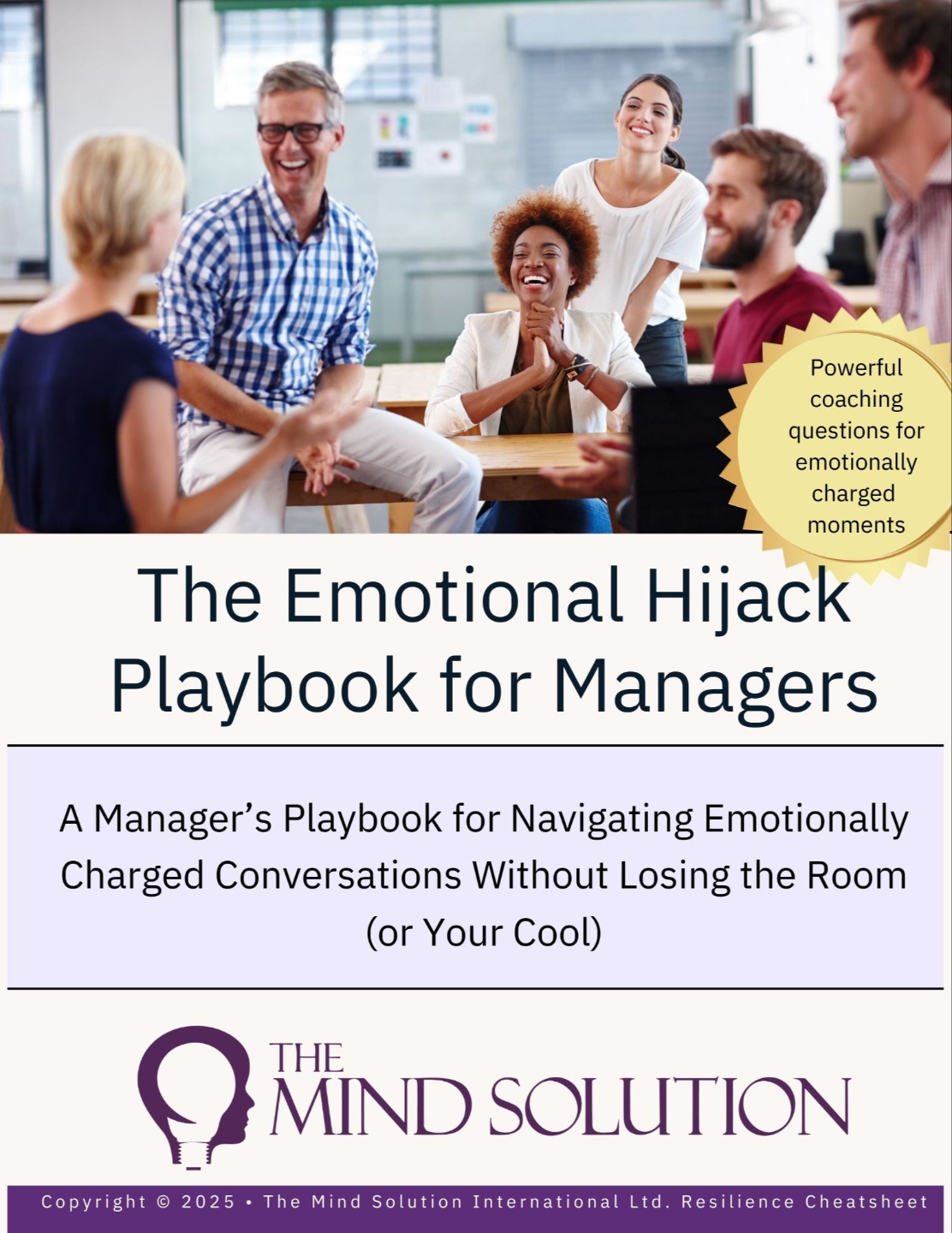Why Aren’t Traditional Leadership Programmes Delivering Lasting Change?
Dec 02, 2024
Why HR Leaders Need More Than Traditional Leadership Training
Leadership development training is often seen as the solution to creating confident, capable, and impactful leaders. For HR leaders, however, these programmes often fail to address the deeper issues driving burnout, self-doubt, and limiting beliefs.
When I worked in HR, I saw thousands of pounds poured into these programmes, with very little to show for it. Senior leaders would attend multi-day courses and return… unchanged. The same behaviours, the same stress levels, the same blind spots.
It always puzzled me why these expensive, high-profile programmes deliver real change.
The answer lies in what these programmes focus on, and more importantly, what they overlook.
Why Leadership Training for HR Leaders Must Address Beliefs, Not Just Behaviours
Our culture is obsessed with behaviour change, and leadership programmes are no different. They teach strategies, frameworks, and communication models, all designed to modify how leaders act. But here’s the truth: behaviour isn’t the problem — it’s the symptom.
Behaviour is driven by beliefs and fears. If those remain untouched, no amount of training will create lasting transformation. Leaders may leave feeling inspired, but once they step back into the chaos of their day-to-day, old conditioned patterns resurface.
Real change happens when you address the fears, limiting beliefs, and emotional triggers driving those behaviours in the first place.
The Hidden Link Between Emotional Safety and Leadership Impact
At our core, humans need to feel safe. For HR leaders, safety is the foundation for authenticity. If you don’t feel safe owning your worth, speaking up, or showing vulnerability, you’ll unconsciously protect yourself with behaviours like:
-
People-pleasing to avoid conflict
-
Overworking to prove your value
-
Staying silent to avoid judgment
-
Avoiding risks that could put you in the spotlight
These patterns might be draining, but they also serve one purpose — to keep you safe, at least in the mind of your nervous system.
A 2020 study by KPMG revealed that 75% of female executives across various industries have experienced feelings of inadequacy and self-doubt, commonly known as imposter syndrome, at certain points in their careers.
How Early Experiences Shape HR Leadership Behaviour
The roots of self-sabotaging patterns often lie in early experiences, especially those that felt humiliating, frightening, or left you feeling powerless. Trauma isn’t always about catastrophic events it can come from small but deeply impactful moments.
I’ve worked with many HR leaders whose behaviour patterns were shaped by “minor” incidents in childhood. For example, growing up with strict authority figures who shamed you for speaking up can wire you to stay quiet in meetings decades later.
One client told me how, as a child, she was made to stand facing the wall in class for getting an answer wrong. Another was humiliated in front of peers by a teacher. To an adult, these moments might seem trivial. To a child’s nervous system, they are anything but.
My Own Experience of “Freeze” and Fear of Visibility
I’ll never forget being in primary school, trying to make a classmate laugh. The teacher caught me and made me stand in the middle of the playground — alone — where every other class could see me.
I froze. I couldn’t move, couldn’t hide. My body went into the classic “freeze” response. I remember the hot flush of humiliation, knowing the boy I liked could see me.
In that moment, my nervous system learned a lesson: visibility is dangerous. Mistakes lead to humiliation. Stay small, stay unseen, stay safe.
That early imprint shaped patterns of perfectionism and self-protection that stayed with me for years.
Why Behaviour-Based Leadership Training Can’t Touch This
The body keeps the score. These imprints live in the nervous system, and unless they’re addressed at the root, they’ll keep influencing behaviour no matter how many new “leadership strategies” you learn.
Traditional leadership programmes focus on skills and behaviours. But if the subconscious belief is “I’m not safe to be visible” or “If I get it wrong, I’ll be humiliated,” the nervous system will override any conscious intention to change.
The Cost of Ignoring Burnout in HR Leadership
HR leaders are no strangers to burnout. In fact, HR has one of the highest burnout rates of any profession. The constant emotional load of supporting others, holding space for conflict, and managing organisational change takes its toll.
Yet, when organisations invest in leadership training, they rarely consider the unique emotional demands placed on HR. The result? Leaders who are highly skilled on paper but emotionally exhausted and struggling to sustain performance.
Without addressing nervous system regulation, emotional resilience, and subconscious patterns, HR leaders are left without the tools to thrive long-term.
So, How Do HR Leaders Break the Cycle?
If you recognise yourself in these patterns, know this: change is possible. But it requires more than surface-level strategies.
It starts with:
-
Identifying subconscious beliefs that drive overwork, self-doubt, or people-pleasing.
-
Creating emotional safety so you can show up fully without fear of judgment or rejection.
-
Building nervous system resilience so you can handle challenges without burning out.
Enter HR Alchemy: The Emotional Intelligence Blueprint for HR Leaders
This is exactly why I created HR Alchemy, a two-day, high-impact programme designed specifically for HR teams who want to step into their highest leadership potential without sacrificing their wellbeing.
In HR Alchemy, we go beyond behaviour change. We work at the level of beliefs, emotional safety, and nervous system mastery. You and your HR team learn how to:
-
Recognise and interrupt the unconscious patterns that lead to burnout
-
Build deep emotional intelligence to navigate complex people challenges
-
Regulate your own state so you can lead with clarity and composure
-
Create a culture of psychological safety in your organisation
-
Protect your own energy while still holding space for others
Because when HR leaders are energised, emotionally intelligent, and free from survival-mode patterns, the ripple effect across the organisation is transformational.
Final Thought: Leadership Starts on the Inside
Leadership isn’t just about skills, it’s about who you are at your core. For HR leaders, authenticity, visibility, and influence come naturally when you feel safe to be yourself.
If you’ve been feeling overworked, emotionally drained, or stuck in patterns you can’t seem to shake, it’s not a flaw in your capability. It’s simply your nervous system doing what it learned to do long ago.
But those patterns don’t have to define you.
Through HR Alchemy, I’ve seen leaders go from exhausted and reactive to calm, clear, and deeply impactful in just two days.
If you’re ready to transform not just how you lead, but how you feel while leading, book a conversation today and let’s explore how HR Alchemy can help you and your team.
The Emotional Hijack Playbook For Managers
A Manager’s Free Resource for Navigating Emotionally Charged Conversations Without Losing the Room (or Your Cool).
Perfect to use in your next one-to-one.







